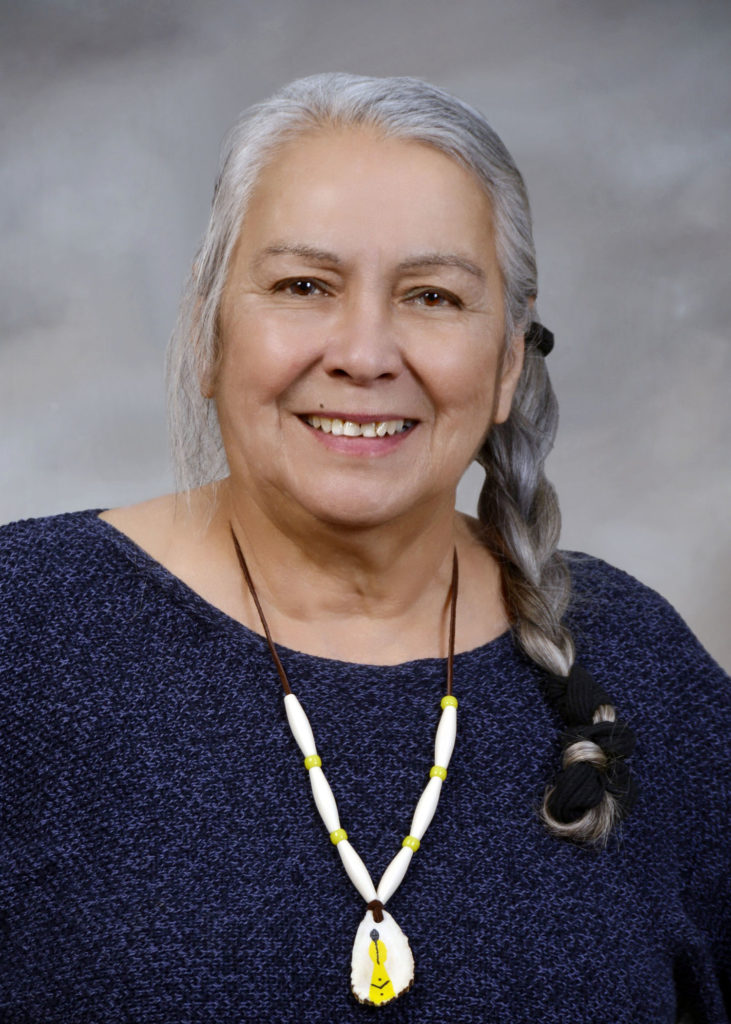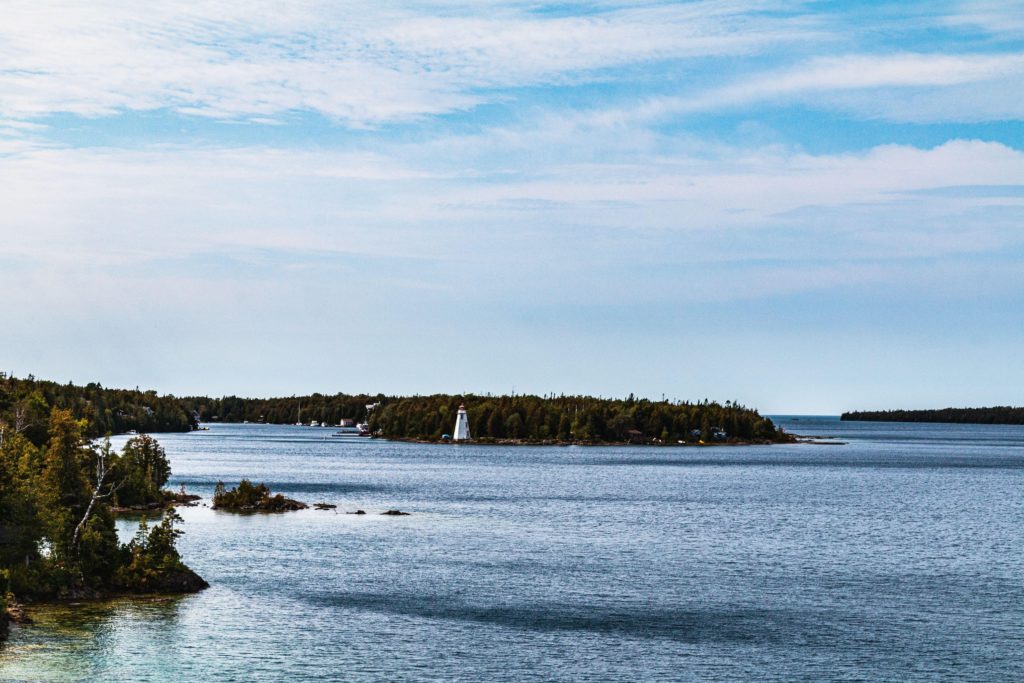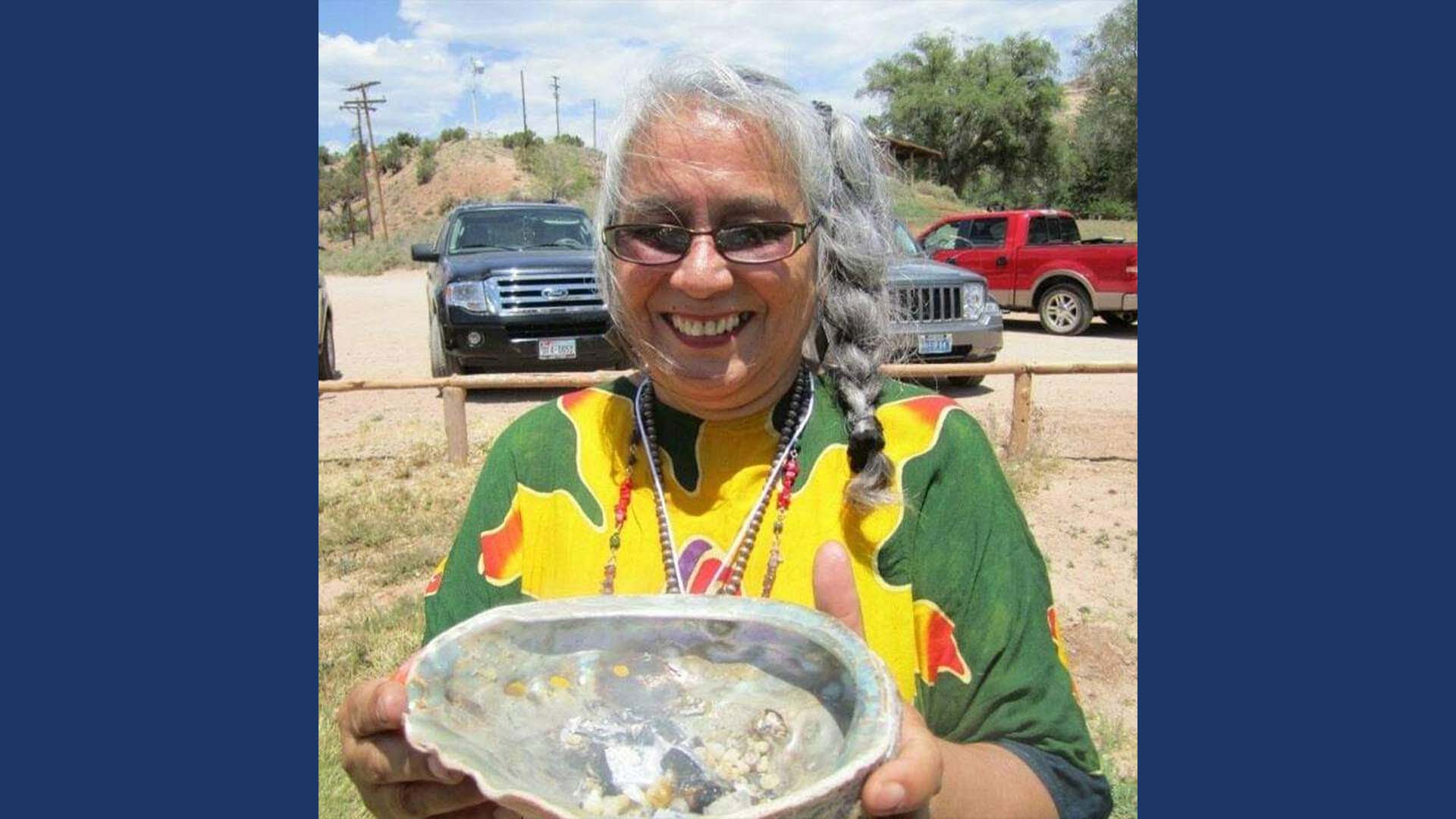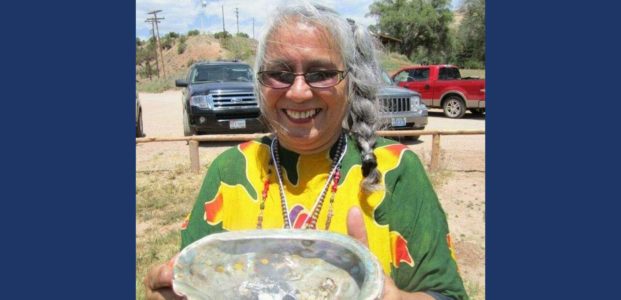Name
Shka Nimke Bineshi Kwe
Green Thunderbird Woman
Tribal Nation
Wahnapitae First Nation
Restore

Caroline Recollet grew up with the sound of her Ojibwe language. She was the seventh of eighteen children raised on the Wiikwemkoong unceded Indian reserve on Manitoulin Island. Her grandparents and parents gave her the gift of her language and an understanding of the land. They lived on a huge farm with animals and gardens that fed them well, along with huge maple trees they harvested for maple sugar. Wild apple trees grew on their property and stories were told of her grandfather traveling with apple seeds in his pocket that he sowed everywhere. Caroline’s family also had knowledge of the native plants and their medicine. Her grandmother’s family were medicine people, and her father took on that role and cared for his children when they were sick. He taught Caroline how to harvest their medicines and live in relationship with the natural world. Caroline learned to listen to the voice of the land.
At the age of fourteen, Caroline was sent to a white boarding home for her last three years of secondary school. It was her first experience hearing a language other than Ojibwe. In her own words, the “English language does not have spirit and heart, but my Ojibwe language is full of it.” The separation from everything familiar and sacred to Caroline was “soul wounding”. On top of that, she had to navigate racism and discrimination in the school and the community. Her life after boarding home further separated her from her home, bringing her to urban settings in Ontario and Alberta.
Caroline’s response to her boarding school experience was a commitment to social and political activism for Native people for over twenty years. She worked with institutionalized First Nation youth and created a Native cultural program. She served on the Board of Directors for a Native Friendship Centre and ultimately became the Centre’s Executive Director. It was during this time that Caroline set up a court program. She then turned her sights to raising funds for housing for low-income Native families. After the first ten units were successfully purchased, she negotiated funding for a Native Group Home.
Caroline’s commitment to political engagement led her to a position with the provincial government, serving as a Native consultant for the Robinson Huron Treaty Area. Three years later she took a position with the Metis Nation of Alberta and successfully negotiated an agreement with the Province for Metis Child and Family Services and served in the Executive Director Position for ten years. She was then appointed by the Metis Nation of Alberta to lead the Social Services sector agreement they had with the province. She was awarded the Queen’s Centennial medal for Canada’s 125th anniversary in honor of her work with Metis families and was given recognition at a Metis National Assembly held in Vancouver in Sept of 1987 . Caroline’s states that the most meaningful part of accepting this award was that she was nominated by the Metis Nation of Alberta and the medal was awarded to her by the first Metis Lieutenant Governor of Manitoba Yvon Dumont.
It was only a matter of time before Caroline directed her efforts toward home. Her true homeland had not been surveyed for her people after the Robinson Huron Treaty of 1850 until 1885, 35 years later. Caroline alongside her brother Peter lead historical research for a boundary claim that later became validated by the federal government. After accomplishing this and other claims, Caroline turned her heart to her spirit and began the important journey to healing.
Returning to her homeland started the healing process for Caroline. In the company of grandmothers Caroline remembered her father’s love and kindness. Through dreams, memories, stories, and ceremony, she recovered the ancient knowledge that was always a part of her and reconnected with the voice of the land. She wants this knowledge to be handed down. “I no longer have a lifetime but if I could mentor my daughters, her grandchildren and great grandchildren to take on this task now, the legacy is passed on.”




